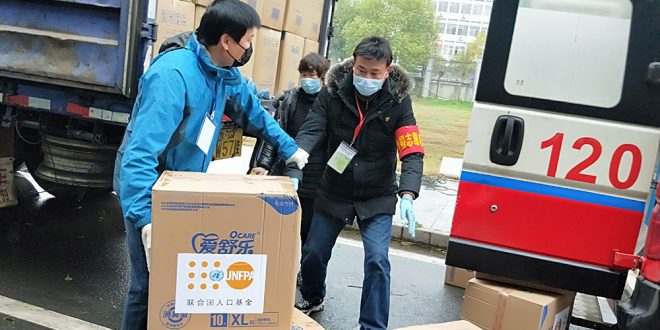Opinion:
By Ayomide Oriade
The rapid spread of COVID-19 has disrupted businesses, communities, education, livelihood and the lives of billions of people globally. As individuals and businesses react and desperately try to minimize the impact and spread of the virus, the government is also taking action.
President Muhammadu Buhari ordered the lockdown of Lagos, Abuja and Ogun State during the national broadcast in the evening of Sunday, March 29, 2020 to further strengthen the initial announcement of the immediate closure of open markets and stores, with the exception of those that sell essential items by Lagos state government.
While these moves are highly commendable, it is imperative to point out, at this point, that Nigerians can still survive and live modestly if we all embrace e-Commerce and explore alternative payment systems and delivery methods to ensure that people are still able to stock up on essential items like food, drugs, water, toilet paper, soap, etc and business owners do not completely shut down and run at a total loss during this period.
For instance, according to the President, the lockdown order “does not apply to businesses in “food processing, distribution and retail companies.” Therefore, my interpretation is that restaurants in the locations affected are not mandated to close up, but they cannot serve walk-in customers due to the restriction of movement.
These measures are very critical to strike a delicate but critical balance between containing this pandemic and the inherent risk that the gathering of people together in a restaurant or medical retail store poses, and the need for availability of food and medical supplies for survival
In the light of this reality, e-commerce giant, Jumia Nigeria already has the contactless delivery and e-payment option in place to keep consumers, dispatch riders and vendors safe in the wake of the Covid-19 outbreak. To drive the initiative, the ‘contactless safe delivery’ option has been implemented on JumiaPay, the payment platform.
This enables consumers to make prepaid payments for products online and get them delivered without a direct body contact or cash exchange with the delivery agent. Jumia Food platform with restaurants all over the country as partners is a reliable option in providing several restaurant options for consumers during the lockdown.
Jumia’s contactless delivery services are considered safe, with strict hygiene practices that ensure all packages leaving the warehouse are protected. With its integrated logistics network, Jumia makes these deliveries available to consumers all over the country, including remote and rural areas.
Jumia’s delivery agents have been trained to enforce necessary standards during delivery. They are instructed to call or text when they arrive at the customer’s place and drop off the package at their doorstep, then step back to a safe distance limit and wait for the customer to take the package before leaving.
Days before the lockdown announcement by the President, walking into a shopping mall like Shoprite wasn’t easy because consumers had to join long queues and wait turns to get in, in line with Lagos State government directive of not more than 20 people in a gathering at a time in observance of social distancing. Now the lockdown is in full force, then it is imperative that we all now play our part.
With all these fears and inconveniences in place, finding an alternative means of buying and selling such that reduces human-to-human contact has become a must.
In countries like the U.S, the U.K and a few European countries, restaurants and other retail companies are already using the contactless payment method to reduce the impact of the virus in the daily lives of citizens. While restaurants stay open, customers are however not allowed in. The staff in charge of preparing food or making deliveries takes all the necessary precautions to protect themselves and consumers, by wearing preventive gear and avoiding or having limited contact with consumers. This sort of delivery allows delivery personnel to leave packages at the doorstep of consumers, as payment would have already been made online.
Without these measures in place, the coronavirus epidemic will leave millions of Nigerians struggling to get back on their feet even years after the virus has been contained. Jumia Food, with restaurants in major cities such as Lagos, Abuja, Port Harcourt as partners, is a reliable alternative for providing several restaurants for consumers to choose from during the lockdown.
Jumia’s contactless delivery service is considered safe, with strict hygiene practices that ensure all packages leaving the warehouse are protected. With its integrated logistics network, Jumia makes these deliveries available to consumers all over the country, including remote and rural areas.
*Ayomide Oriade writes from PR Redline
 Startrend International Magazine For Your Latest News And Entertainment Gists
Startrend International Magazine For Your Latest News And Entertainment Gists





